Who shot Osama bin Laden? Two Navy Seals go head to head
US military leaders condemn Robert O’Neill and Matt Bissonnette after both claim they shot Osama bin Laden
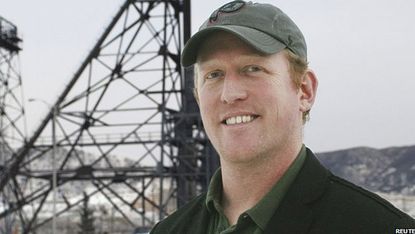
A row has broken out over who killed Osama bin Laden after an ex-Navy Seal Robert O’Neill said in an interview that contrary to previous claims, it was he who fired the fatal shot.
O'Neill told the Washington Post that he was one of dozens of US special operators who stormed the reclusive leader’s compound in Abbottabad, Pakistan on 2 May, 2011.
According to O’Neill’s account, he was the first to enter Bin Laden’s room and fired a round that hit the terrorist leader in the forehead, killing him instantly.
Subscribe to The Week
Escape your echo chamber. Get the facts behind the news, plus analysis from multiple perspectives.

Sign up for The Week's Free Newsletters
From our morning news briefing to a weekly Good News Newsletter, get the best of The Week delivered directly to your inbox.
From our morning news briefing to a weekly Good News Newsletter, get the best of The Week delivered directly to your inbox.
However, the story varies from the description offered by another member of Seal Team Six, Matt Bissonnette, who claims in his controversial 2012 account of the raid, No Easy Day, that he shot and killed Bin Laden.
O’Neill’s new claims reportedly angered other ex-special forces personnel who usually maintain a strict code of silence over their operations. O’Neill had previously been interviewed anonymously about the mission by Esquire magazine, but his decision to reveal his identity publically in a forthcoming interview with Fox News prompted a website run by ex-special forces to publish his name in advance.
The website quotes from a letter signed by force master chief of the Naval Special Warfare Command (NSWC) Michael Magaraci and Rear Admiral Brian Losey. The two men condemn O’Neill and Bissonnette for publicising their roles in the raid.
The post, written by a former CIA officer who goes by the name of Frumentarius says: "Leaving little doubt of the disdain that they, and others in the community, feel toward breaches of the SEAL ethos, Rear Admiral Brian Losey, Commander of NSWC, and Force Master Chief Michael Magaraci state that violators of that ethos 'are neither teammates in good standing, nor teammates who represent Naval Special Warfare.' "
He continues: "They reiterate that a central part of the ethos is not advertising the nature of their work, nor seeking recognition for particular actions."
The US government’s official account of what happened is unlikely to be published for many years, the BBC says.
Create an account with the same email registered to your subscription to unlock access.
Sign up for Today's Best Articles in your inbox
A free daily email with the biggest news stories of the day – and the best features from TheWeek.com
-
 'Make legal immigration a more plausible option'
'Make legal immigration a more plausible option'Instant Opinion Opinion, comment and editorials of the day
By Harold Maass, The Week US Published
-
 LA-to-Las Vegas high-speed rail line breaks ground
LA-to-Las Vegas high-speed rail line breaks groundSpeed Read The railway will be ready as soon as 2028
By Peter Weber, The Week US Published
-
 Israel's military intelligence chief resigns
Israel's military intelligence chief resignsSpeed Read Maj. Gen. Aharon Haliva is the first leader to quit for failing to prevent the Hamas attack in October
By Justin Klawans, The Week US Published
-
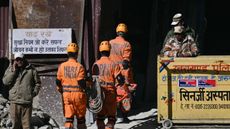 Puffed rice and yoga: inside the collapsed tunnel where Indian workers await rescue
Puffed rice and yoga: inside the collapsed tunnel where Indian workers await rescueSpeed Read Workers trapped in collapsed tunnel are suffering from dysentery and anxiety over their rescue
By Sorcha Bradley, The Week UK Published
-
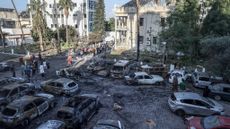 Gaza hospital blast: What the video evidence shows about who's to blame
Gaza hospital blast: What the video evidence shows about who's to blameSpeed Read Nobody wants to take responsibility for the deadly explosion in the courtyard of Gaza's al-Ahli Hospital. Roll the tape.
By Peter Weber, The Week US Published
-
 Giraffe poo seized after woman wanted to use it to make a necklace
Giraffe poo seized after woman wanted to use it to make a necklaceTall Tales And other stories from the stranger side of life
By Chas Newkey-Burden, The Week UK Published
-
 Helicopter sound arouses crocodiles
Helicopter sound arouses crocodilesTall Tales And other stories from the stranger side of life
By Chas Newkey-Burden, The Week UK Published
-
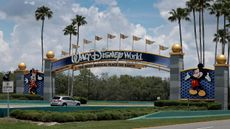 Woman sues Disney over 'injurious wedgie'
Woman sues Disney over 'injurious wedgie'Tall Tales And other stories from the stranger side of life
By Chas Newkey-Burden, The Week UK Published
-
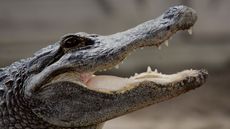 Emotional support alligator turned away from baseball stadium
Emotional support alligator turned away from baseball stadiumTall Tales And other stories from the stranger side of life
By Chas Newkey-Burden, The Week UK Published
-
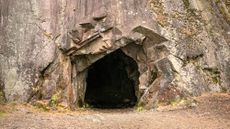 Europe's oldest shoes found in Spanish caves
Europe's oldest shoes found in Spanish cavesTall Tales And other stories from the stranger side of life
By Chas Newkey-Burden, The Week UK Published
-
 Artworks stolen by Nazis returned to heirs of cabaret performer
Artworks stolen by Nazis returned to heirs of cabaret performerIt wasn't all bad Good news stories from the past seven days
By The Week Staff Published